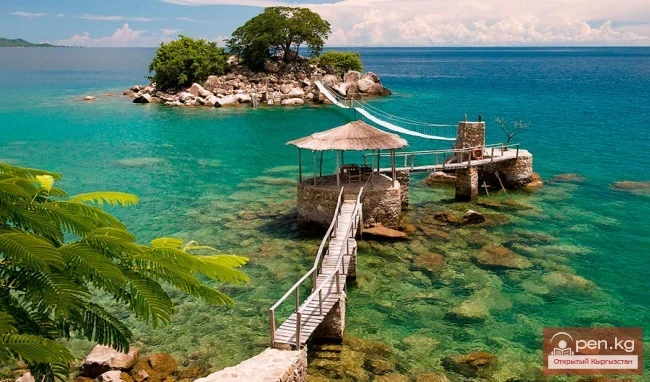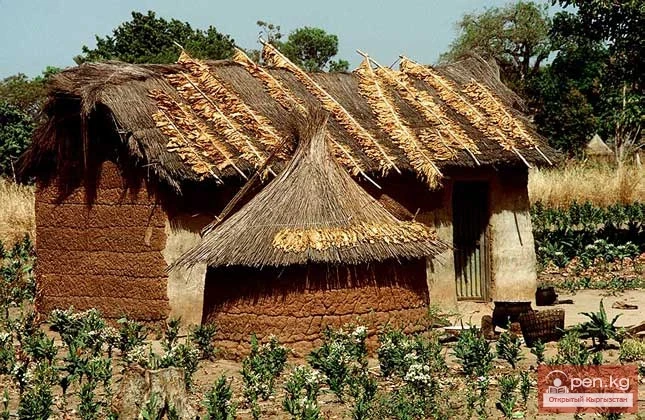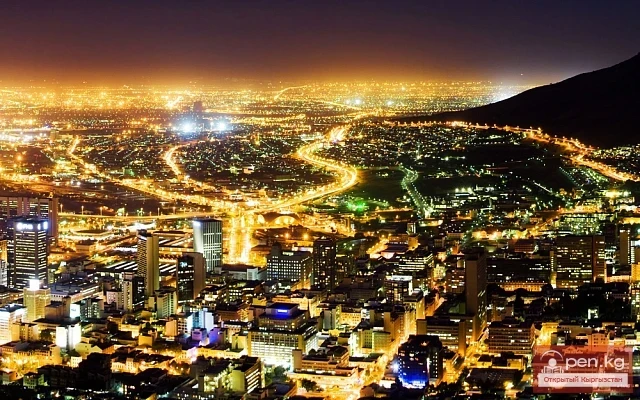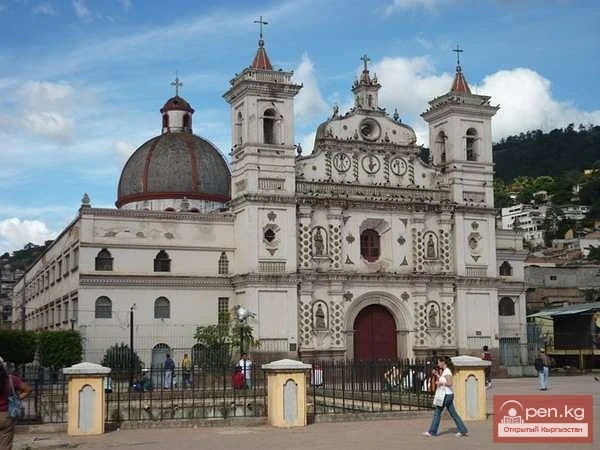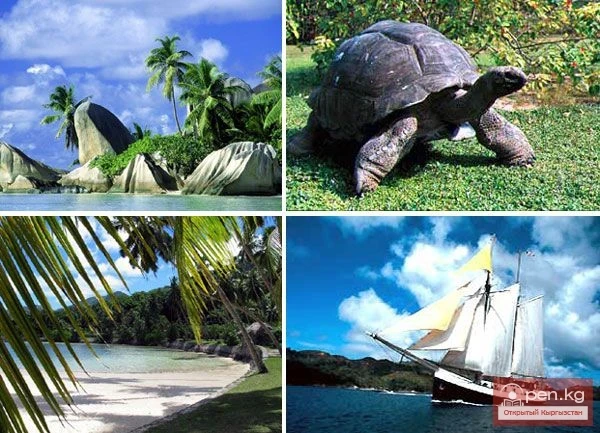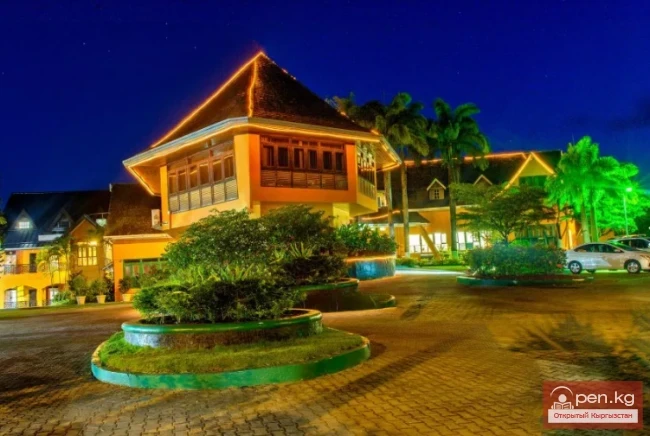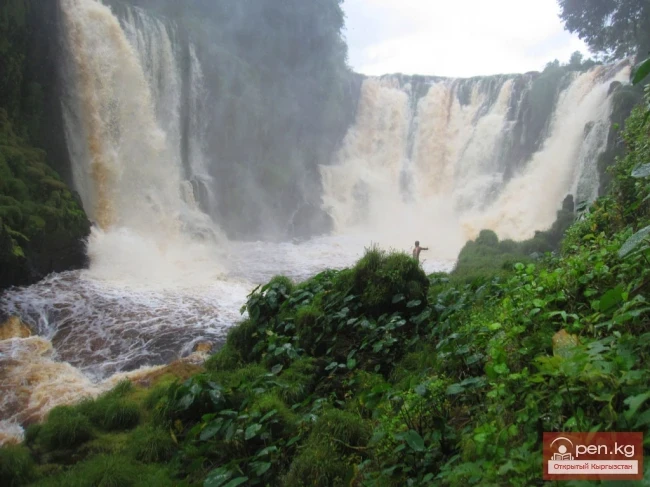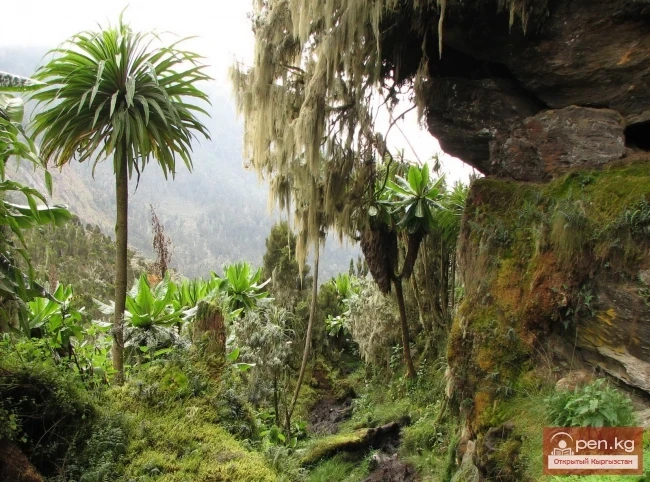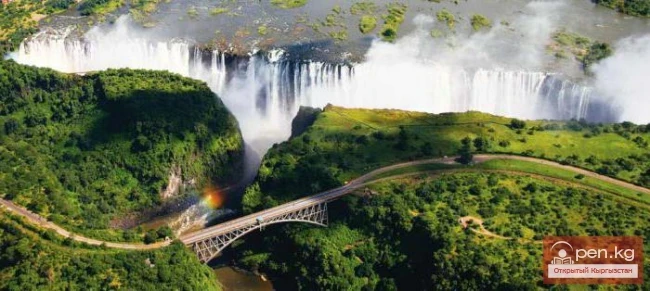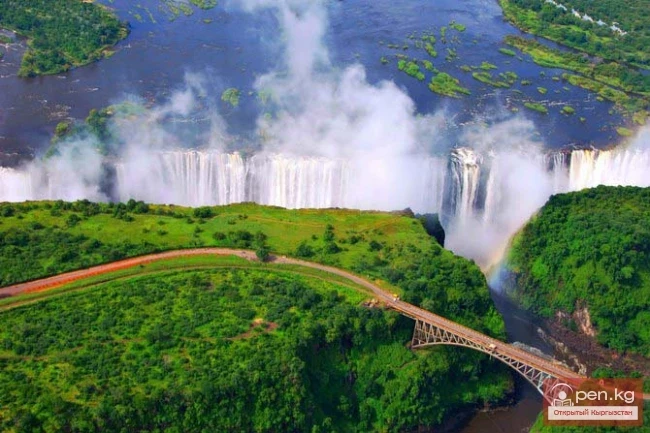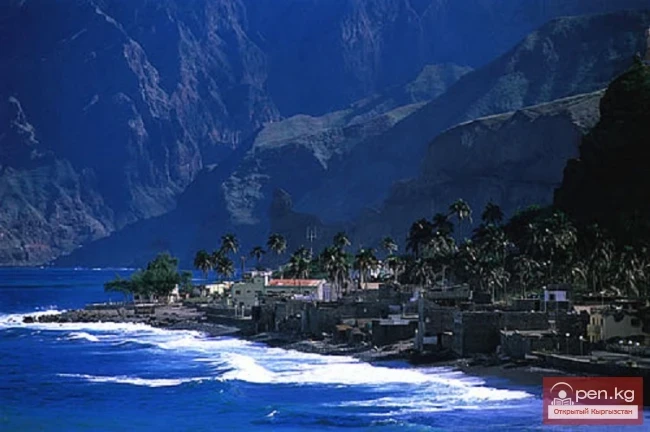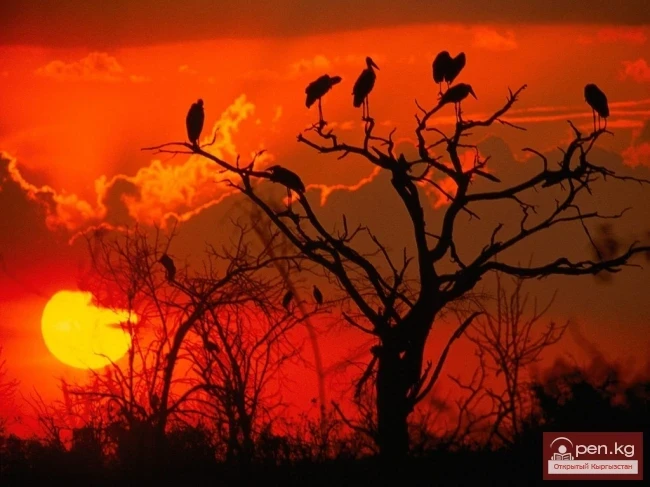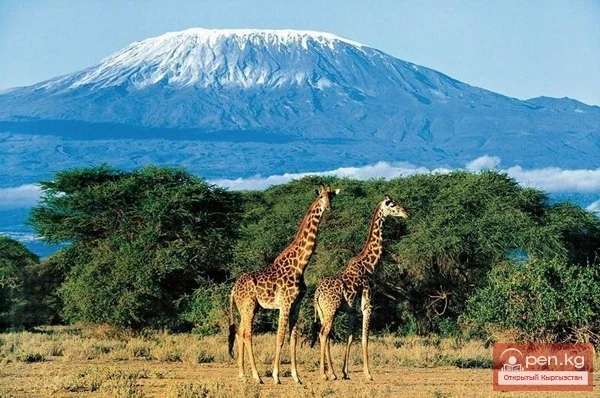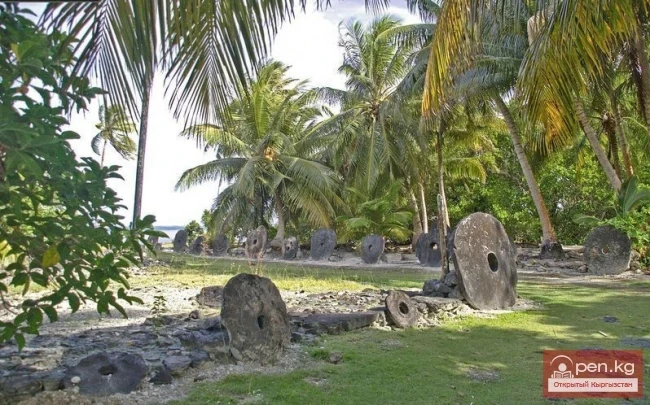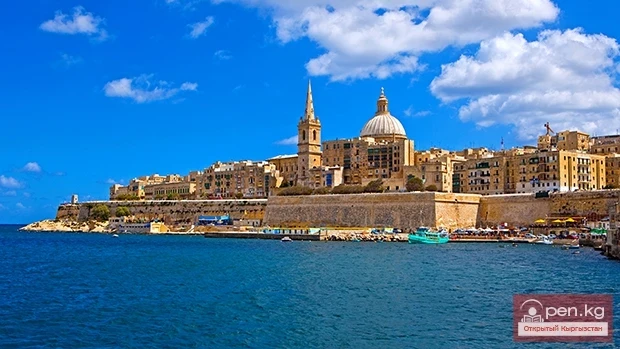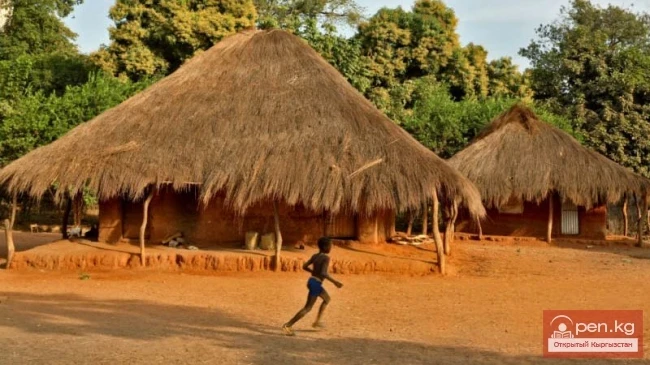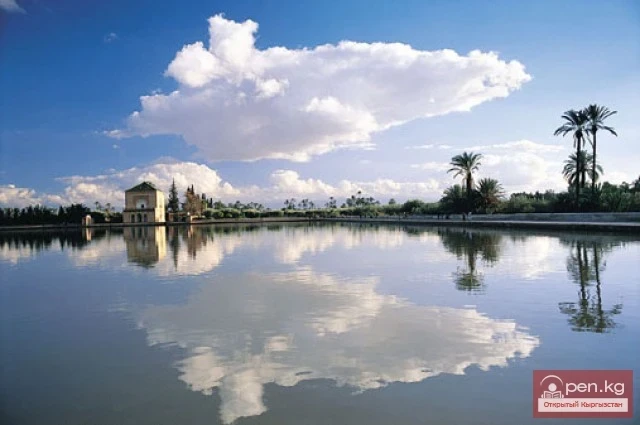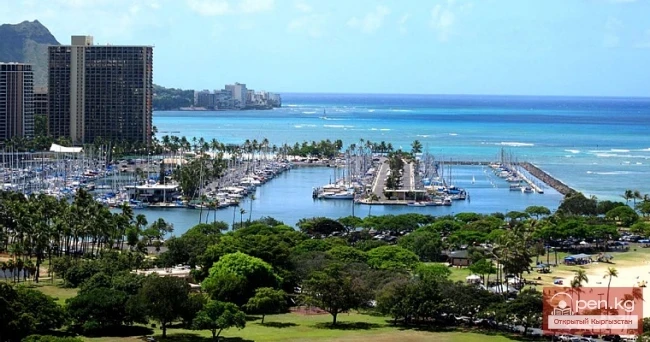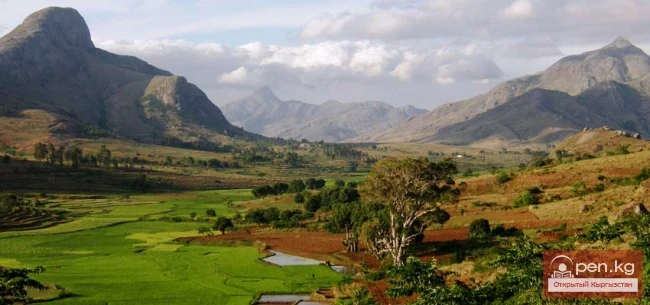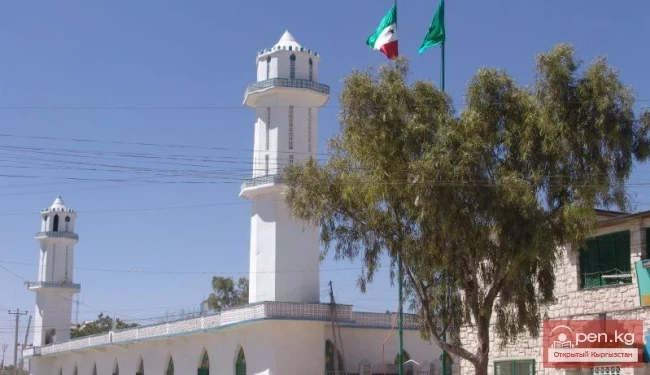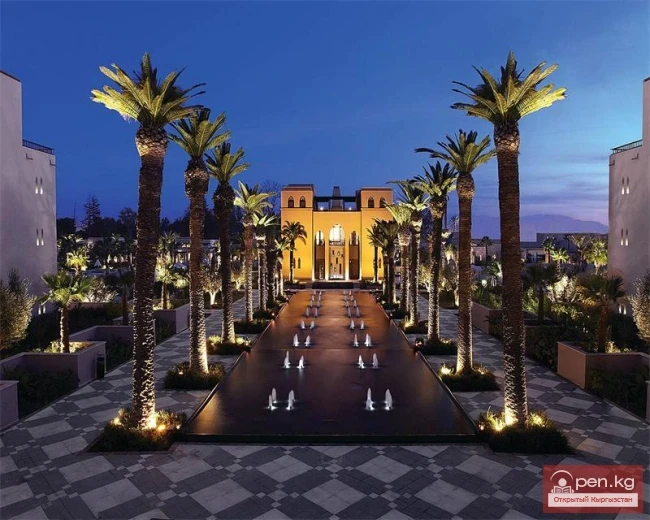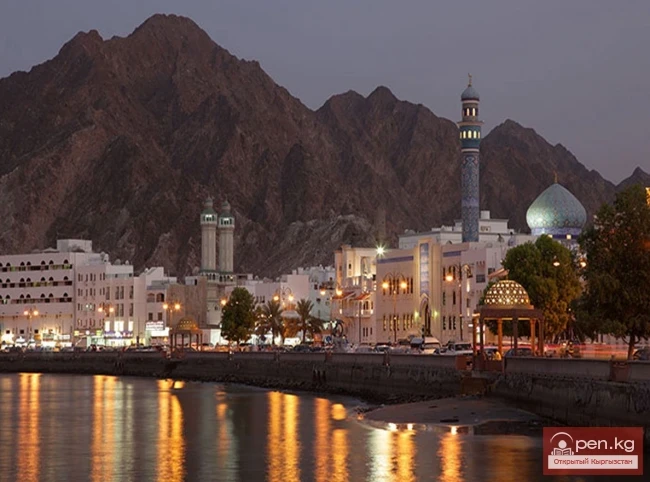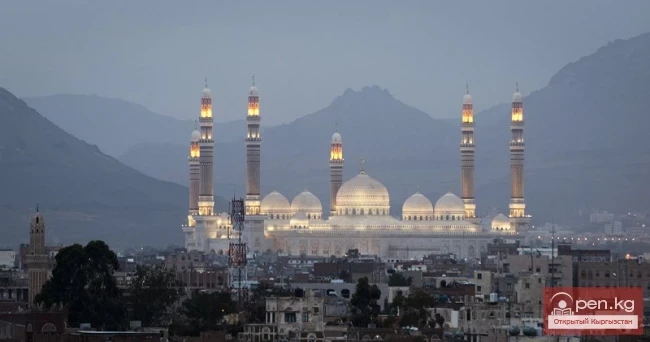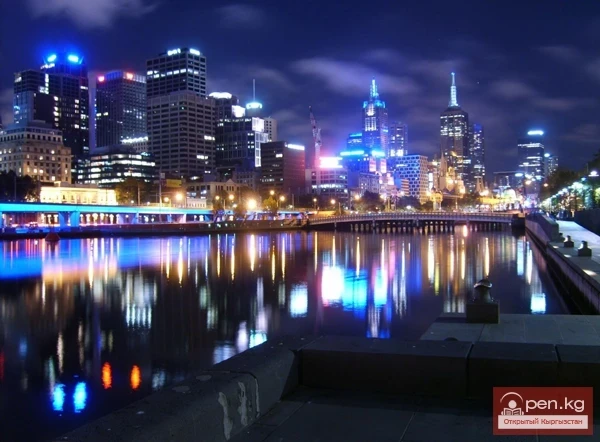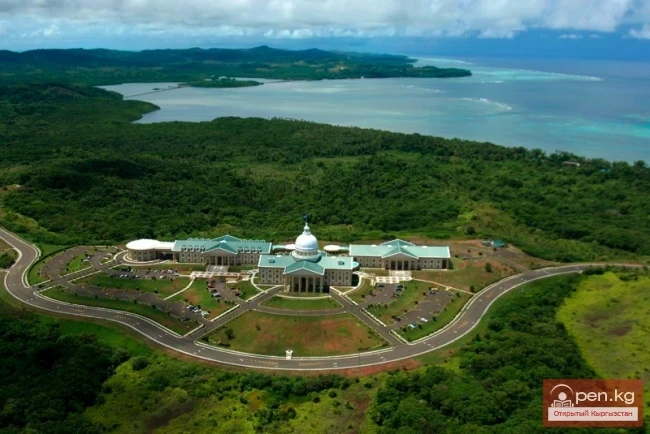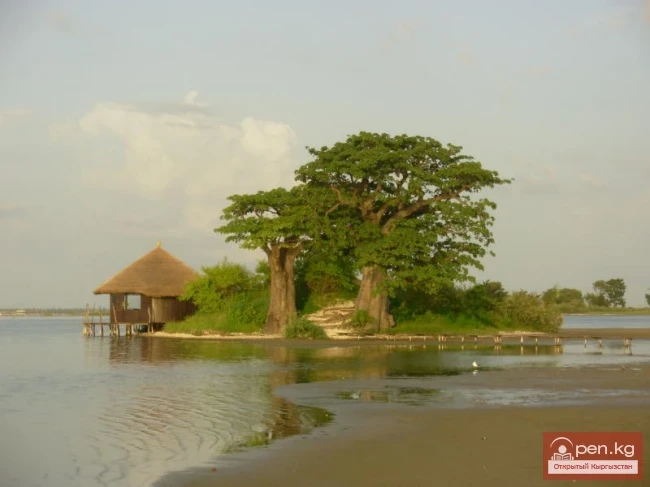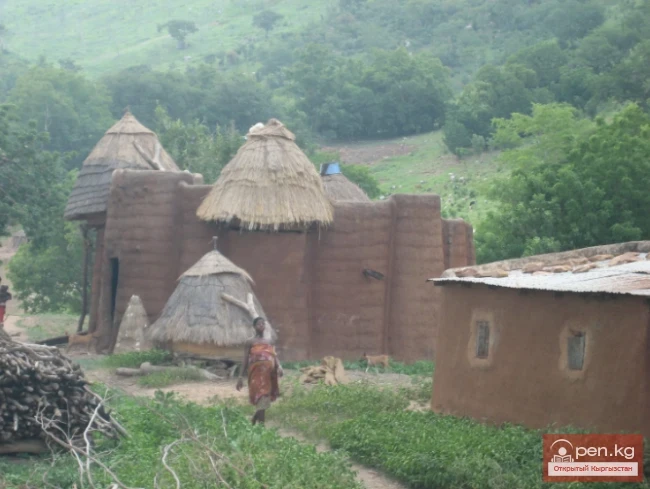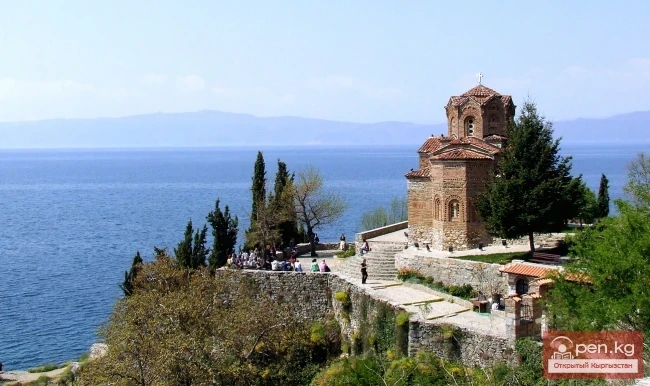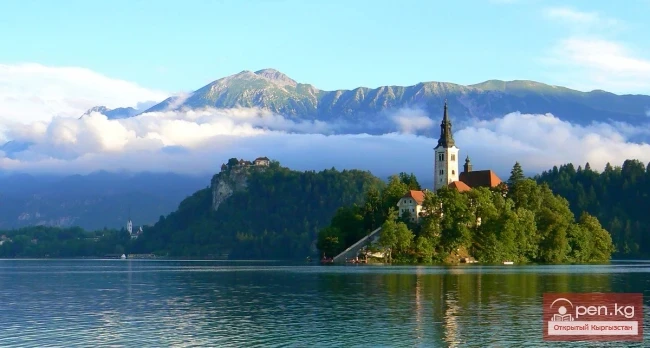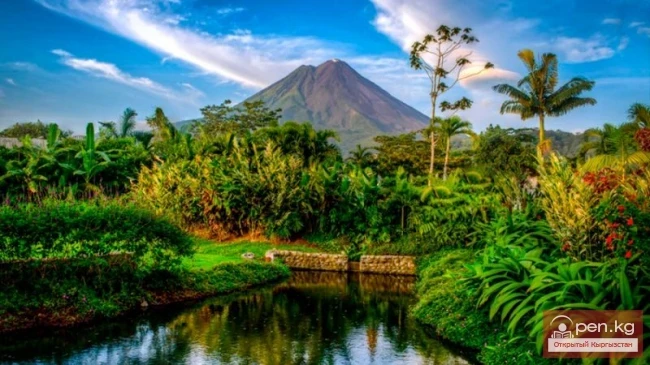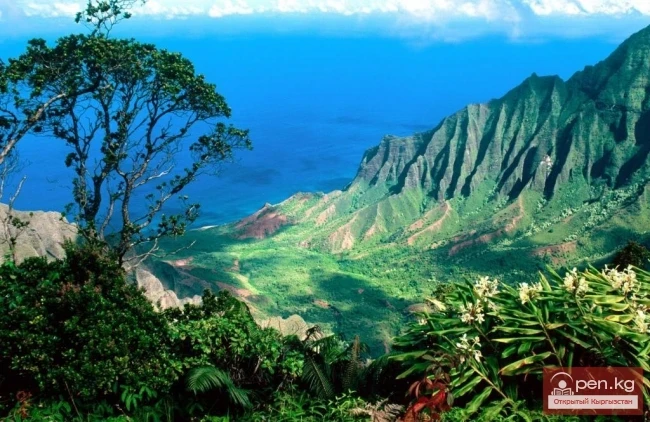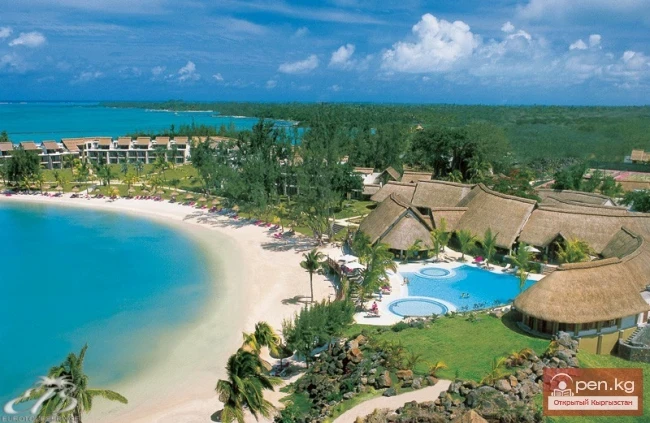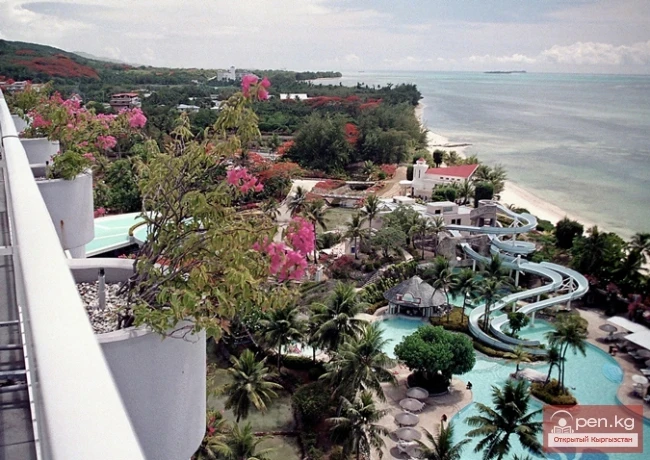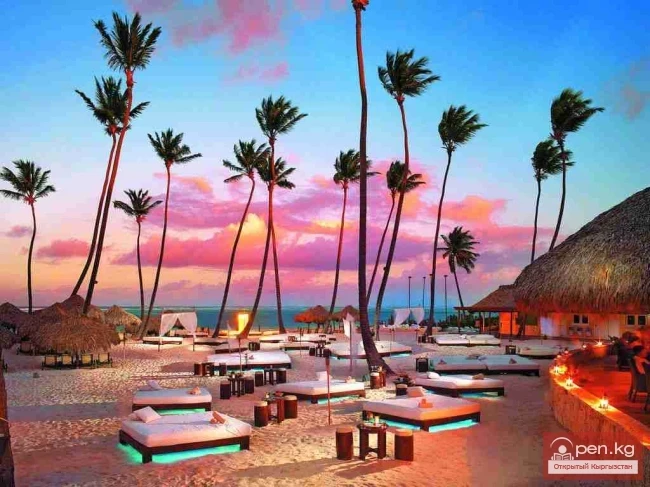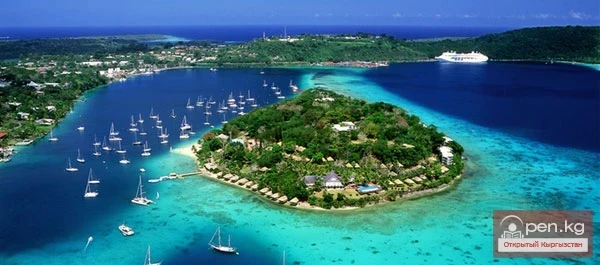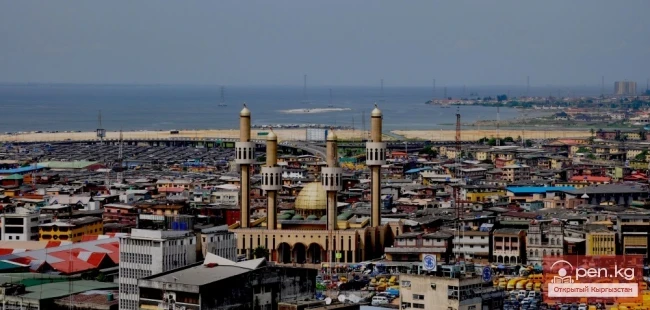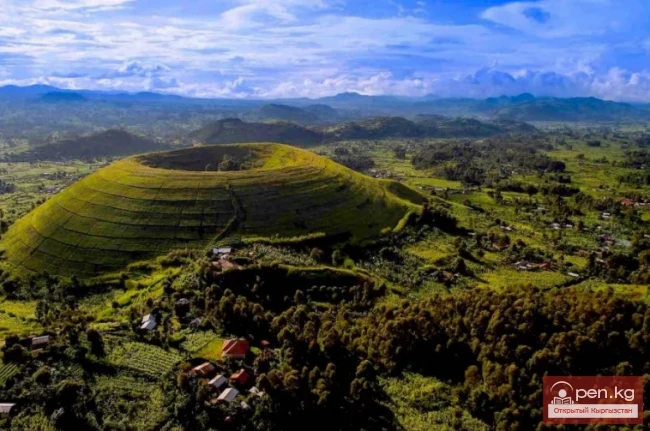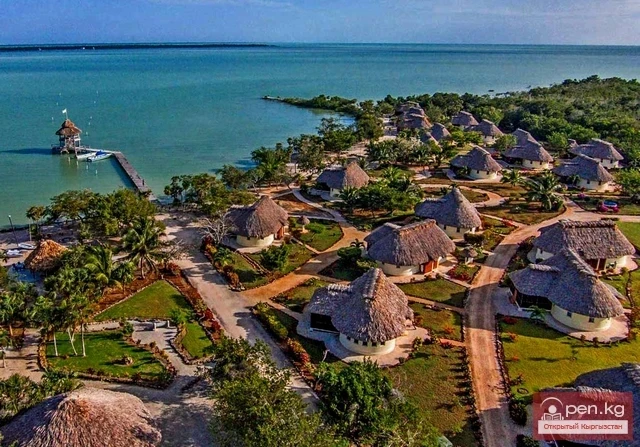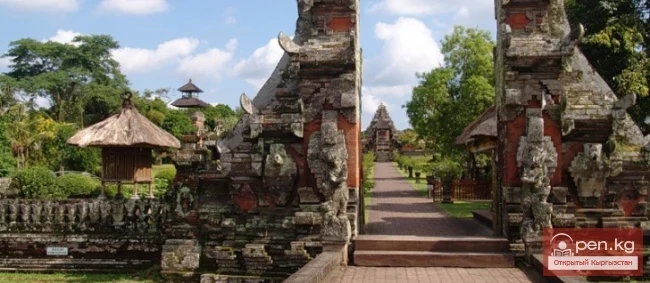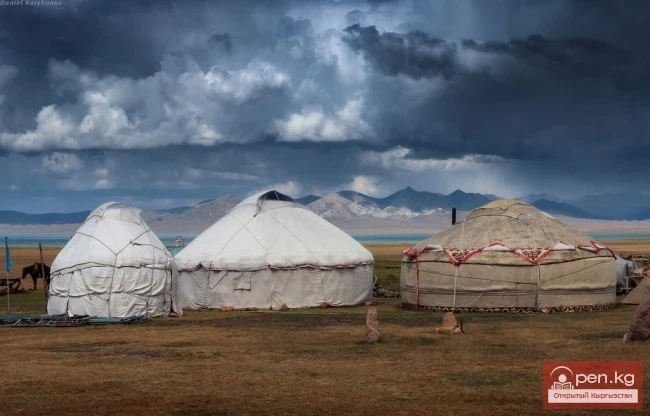
MOZAMBIQUE. Republic of Mozambique
A country in southeastern Africa, bordered by the Indian Ocean. Area - 799.4 thousand km². Capital - Maputo (over 1.2 million), major cities: Beira (about 350 thousand), Nampula (about 250 thousand). Administratively, the country is divided into 11 provinces, including Maputo, which has the status of a province. Population - over 18 million (2002), over 98% belong to Bantu language groups (Makua, Tsonga, Malawian, Shona, etc.). Immigrants from Europe and Asia (Portuguese, Indians, Pakistanis, etc.) - about 40 thousand - mostly live in cities. The official language is Portuguese.
Religion: a significant portion of the African population (40% of believers) adheres to traditional beliefs (ancestor worship, deification of natural forces); about 40% are Christians (mostly Catholics) and about 20% practice Islam. The currency is the metical.
It has diplomatic relations with the Russian Federation (established with the USSR on June 25, 1975).
National holiday - June 25 - Independence Day (1975).
Mozambique is a republic. The current constitution came into effect on January 31, 2005, proclaiming a course towards the establishment of a rule of law state based on multipartyism. The president, elected for a 5-year term by universal secret ballot (since February 2, 2005 - A. E. Guebuza), is the head of state and government, commander-in-chief of the armed forces and security forces, and chairman of the National Council for Defense and Security.
The position of prime minister is maintained (since December 17, 2004 - Luísa Diogo), assisting the president in leading the Council of Ministers.
The highest legislative body is the Assembly of the Republic (unicameral parliament). It consists of 250 deputies, elected by universal direct vote for a term of 5 years.
The FRELIMO party is the ruling party, transformed from the Mozambique Liberation Front (FRELIMO) on February 3, 1977. The chairman is A. E. Guebuza. It has 160 seats in parliament. The opposition coalition of 9 parties is led by the Mozambique National Resistance (RENAMO) - 90 seats (chairman - A. Dlakama).
There are 2 trade union organizations in the country: the Organization of Workers of Mozambique (OTM) and the Confederation of Free and Independent Trade Unions (CONSILMO).
The Portuguese landed in Mozambique in 1495. The colonization of the interior was completed in the early 20th century. In 1951, Mozambique was declared an "overseas province" of Portugal, and in July 1972 it gained "state" rights, remaining fully economically and politically dependent on the metropolis. In the early 1960s, the anti-colonial struggle in Mozambique became organized. This was facilitated by the unification of disparate nationalist groups into a single Mozambique Liberation Front (FRELIMO) (formed on June 25, 1962, in Dar es Salaam). Exhausting all possibilities for a peaceful transition to national self-determination, FRELIMO led an armed struggle for independence in September 1964. In April 1974, after the overthrow of the dictatorial regime in Portugal, the national liberation struggle of the Mozambican people entered its final stage. The new Portuguese government recognized Mozambique's right to self-determination and independence in July 1974.
In September 1974, a transitional government of Mozambique was formed. On June 25, 1975, the independence of the country was proclaimed, and all power was transferred to FRELIMO. The chairman of FRELIMO, Samora Machel, became the president (he died in a plane crash in October 1986). On February 3, 1977, FRELIMO was transformed into the vanguard party of workers and peasants, operating on the basis of Marxism-Leninism. The voluntarism and premature actions that emerged at that time, not taking into account the peculiarities of the historical development of Mozambican society - its multi-structure, extreme economic backwardness, low level of public consciousness, etc. - led to stagnation in production and a further decline in the already low standard of living of the population.
A serious factor affecting the development of Mozambique has been the activities of the anti-government group Mozambique National Resistance (RENAMO), which, since 1976, with the support of intelligence services first from Southern Rhodesia and then from South Africa, waged an armed struggle against the ruling regime. Realizing the impossibility of resolving the conflict by military means, the Mozambican government and RENAMO leaders came to understand the necessity of ending the war and achieving national reconciliation. On October 4, 1992, the conflicting parties signed a General Agreement on Establishing Peace in Mozambique. In October 1994, Mozambique held its first free democratic elections in the country's history (the president of the republic and parliament were elected).
Since 1995, it has been part of the Commonwealth, headed by Great Britain.
Since 1975, it has been a member of the UN, and since 1975, it has been part of the OAU (since 2002 - African Union). It is a member of the sub-regional organization Southern African Development Community (SADC).
In the early years of independence, the economic situation of the country worsened. The total damage from the war with RENAMO in the industry during the 1980s and 1990s amounted to about 15 billion dollars. In early 1987, Mozambique began a shift towards a socio-political system based on a market economy, and the Economic Recovery Program (ERP) was adopted, developed at the insistence of the IMF and the World Bank, of which the Republic of Mozambique has been a member since 1984. The ERP is primarily aimed at developing agriculture, processing, and light industry, and restoring finances. Its material support is oriented towards external sources of financing (about 80%) and obtaining funds by reducing subsidies to state enterprises and social spending. Denationalization and privatization of property are being carried out, elements of the market mechanism are actively introduced, and mixed enterprises are being created. Taxes, prices for goods, and utility charges have sharply increased, and the Central Bank regulates the exchange rate of the national currency - the metical.
In 2004, GDP grew by 7.8% (2003 - 6.9%), inflation was 12% (2003 - 13.8%), and exports increased by 10%. According to the UN Human Development Report for 2004, imports of goods and services accounted for 38% of GDP.
Production growth in the leading sector of the economy - agriculture (which employs 80% of the population) was 6.4% (2003 - 4.2%). Industrial production growth was ensured by the implementation of large projects; 11 enterprises account for up to 90% of total industrial production.
Despite some improvement in macroeconomic indicators in recent years, Mozambique remains one of the least developed and poorest countries in the world: up to 56% of the population lives in poverty, about 2.3 million people (13% of the population) are HIV-infected, and more than 50% of the state budget is formed from donor assistance. The GDP per capita is less than 200 dollars.
The trade balance remains negative. Its deficit increased by 55%. Foreign exchange reserves are over 860 million dollars. Main export goods: seafood, raw cotton, cashew nuts, aluminum, sugar, coal, tantalum.
A heavy burden for Mozambique remains its external debt - 3.7 billion dollars. The internal debt is also significant: the costs of servicing it exceed those of external payments.
The main transport routes serve to ensure transit cargo transportation between the ports of Mozambique and neighboring countries (Zimbabwe, Malawi, Swaziland, and South Africa). Railways - 4 thousand km. Roads - 36 thousand km, including 5 thousand km of paved roads. Major seaports: Maputo, Beira, Nacala, and Quelimane. International airports are located in Maputo and Beira.
Important sources of foreign currency inflows are remittances from Mozambicans working in South Africa and fees for transit cargo from South Africa.
The educational level of the population in Mozambique is low. Over 56% are illiterate. Higher education can be obtained at 6 universities, including 3 state ones - the Higher Institute of International Relations, Eduardo Mondlane University (3 thousand students), and a pedagogical institute. One of the priority areas is the training of national personnel capable of replacing foreign specialists in the near future.
The country publishes newspapers "Notícias", "Diário de Moçambique", the weekly "Domingo", the magazine "Tempo", and several others.
The Mozambique Information Agency (AIM) publishes monthly bulletins in Portuguese, English, and French. "Radio Mozambique" broadcasts programs in Portuguese and local languages. Efforts are being made to cover the entire territory of Mozambique with central television broadcasting.
